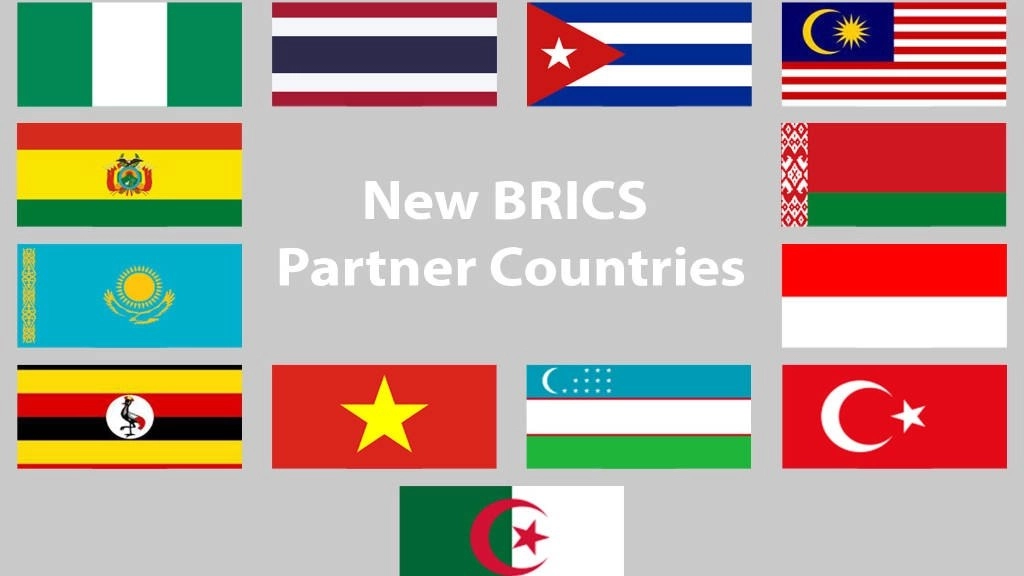10/28/24 BRICS invites 13 partner states to join
The BRICS countries have agreed to include 13 countries in the category of “Partner States” in the association. However, the entry of these countries has not yet been made official, as the newly established protocol in the procedure requires the country holding the current Chairmanship of the organisation (in this case, Russia, from 2025, Brazil) to hold consultations with the partner countries concerned.
The new bloc of countries invited to join the BRICS as “Partner States” include Algeria, Belarus, Bolivia, Cuba, Indonesia, Kazakhstan, Malaysia, Nigeria, Thailand, Turkiye, Uganda, Uzbekistan, and Vietnam.
According to diplomatic sources from the Brazilian delegation in Kazan, Venezuela was left off the list due to a veto by Brazil.
Brazilian Foreign Minister Mauro Vieira stated that the leading BRICS countries have reached a consensus on the ‘criteria and principles’ that will guide the bloc’s future expansion, stating that “Our discussion focused on the criteria and principles for future BRICS expansion. Currently, there are 10 member countries, but there will be more in the future. These principles and criteria have been discussed, approved, and agreed upon. Regarding the list of new members, consultations will begin soon. The Russian Chair will consult with each current member, and we will announce the countries, if not by the end of the year, then in 2025, when the responsibility will pass to the Brazilian Chairmanship of BRICS.”
New BRICS Demographics
These potential new ‘BRICS Partners’ would change the overall BRICS dynamics in terms of global influence. In total, this expanded BRICS would account for just under 43% of global GDP, compared with the G7’s 30%. In population terms, the new BRICS, if all the proposed BRICS Partners joined, would account for about 57% of the total global population, as opposed to 10% for the G7.
In terms of simple demographics, the emergence of what may become the world’s largest multilateral organisation will start to make multiple countries think about the developing, new geopolitical dynamics and the implications. At present, it appears the West is not aware. But with another 20 countries having also applied to join BRICS, and not yet part of the overall structure — change to global geopolitics and trade flows is almost certainly arriving. The 2025 BRICS summit will be held in Brazil, when both these developments and continuing new ones will almost certainly have manifested themselves. The world is changing faster than many people realise.


 REAB Services
REAB Services

 News
News
 Useful tip
Useful tip

